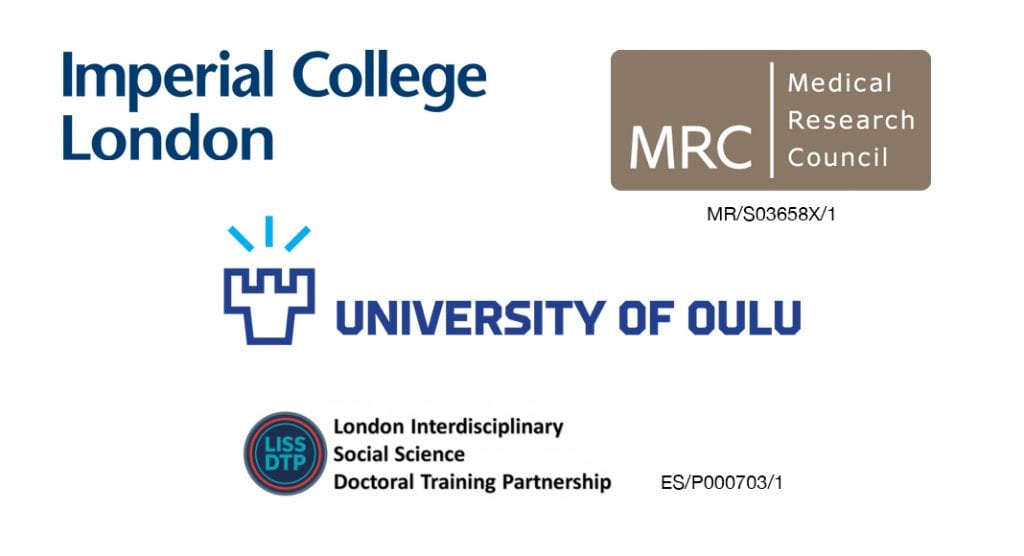
Professor Marjo-Riitta Järvelin of DynaHEALTH-PREcisE highlights the importance of lifestyle factors and early years intervention for healthy ageing.
Professor Marjo-Riitta Järvelin, MD, MSc, PhD, FFPH is the co-ordinator of DynaHEALTH-PREcisE, Horizon 2020-funded research projects focusing on the promotion of healthy and active ageing through promoting social functioning and mitigating the risks posed by obesity and diabetes. She speaks with Health Europa Quarterly about the significance of social, behavioural, and familial factors within preventive care.
What are the key goals of the DynaHEALTH project?
We were looking into the lifestyle factors related to the development of Type 2 diabetes, among other chronic disorders and conditions such as obesity. We found that there were significant biological and sociodemographic factors: both the social environment and a patient’s genetic or biological makeup can have an impact on the development of disease. One of the major papers which we published was about glucose levels present within the different diabetes-related phenotypes.
Now we are working on so-called ‘life course’ models: this means that we are looking at the course of people’s lives from early pregnancy until the age of nearly 50 and structuring that research in such a way that we can cover multiple different stages of life. We are focusing particularly on certain key periods, including the vulnerable period in the first five years: there has been a great deal of research focusing on prenatal and perinatal exposures, for example how smoking or drinking can have an impact on children’s outcomes.
In the long term, very early life factors such as maternal smoking during pregnancy may have an impact on metabolic health later in life – and we were able to show that the children of mothers who smoked had a much worse metabolic profile in middle age overall than children of non-smokers. The PREcisE project is a direct continuation of the DynaHEALTH project; and focuses particularly on the impacts of adverse glucose metabolism in very early life on later health. This aspect of the project is financed by the Joint Programming Initiative ‘A Healthy Diet for a Healthy Life’ under the EU (JPI HDHL/EU), while supported by local national funding bodies.
What preventive or protective lifestyle measures could patients take to improve and maintain their health in the long term?
A healthy lifestyle and regular physical activity are both important from the earliest stages of life onwards: we have seen that if a child continues to be obese into adolescence, it is quite a risky phenomenon. In terms of potential protective factors as they relate to development of Type 2 diabetes, for example, the most important factors again are healthy eating habits, physical activity, and a healthy lifestyle overall: as well as supporting social environment. This has, in theory, been a key focus for treatment and care of obesity and diabetes for a long time, but it has not really been implemented in practice – healthcare professionals have not been proactive enough. They may tell a child’s parent or guardian when you see that the child is departing from the course of optimal development, but what are the actual preventive measures? We need to work with families from the very beginning.
What we have also seen is that there are a handful of significant risk factors which are highly predictive of obesity and diabetes; and those factors are easily accessible in the databases already, as they have been collected as part of routine healthcare processes. These can include elements such as maternal smoking, foetal growth, or the potential for a hereditary component of obesity. However, while it is useful to take genetic factors into account, the issue of lifestyle – how the way people are living affects their health – is very important from a standpoint of protection and prevention.

What is the significance of social functioning in maintaining a healthy lifestyle?
Social environments and social interaction are important factors from a mental health perspective; and mental health does have a palpable impact on bodily health, so essentially social functioning and the social environment are extremely important for people’s overall health behaviour. Your capacity for social functioning develops from the very early developmental stages onwards; it is effectively dependent on the wellbeing and functionality of your family, your relationship with your parents and so on. I am currently working in London Interdisciplinary Social Science (LISS) Programme, where the work focuses, for example, on how social context and its change may have an impact on the population’s health and illness. Under the current COVID-19 pandemic, this research is even more called for than ever and it is highly complementary to pre-existing biologically and behaviourally oriented works. LISS is supported by Economic and Social Research Council, UK.
Once a patient has adopted behavioural or lifestyle changes, how can healthcare providers best ensure those changes are retained?
We do not have routine controls in place for lifestyle factors such as those affecting the maintenance of a person’s weight. There are some very good trials taking place where patients are using mobile devices to track their health: the data gathered using those devices also enables healthcare professionals to keep up to date with patients’ status.
There is a lot more research to be done in this respect – the current thinking is that we should have population-level interventions, to be implemented at specific ages or periods in people’s lives; and that during those specific life stages, we could measure the key factors – biological, health behavioural, and sociodemographic – which have an impact on people’s health. All too often in clinical practice, we don’t measure or track these values such as lipids or blood pressure until people get sick, even though if you followed the patient’s record, you may see that the patient presenting with myocardial infarction now may have had early indications of potential ill health 10 years ago or more.
Our healthcare system is not really responding properly now; and information transfer between healthcare providers is often very slow or does not occur at all, both of which hinder timely action. We need to redesign the whole system in this respect, in order to implement different types of measures – this would equip us with the capability to identify missed opportunities in clinical practice and at the population level. We need to pay much more attention to lifestyle and other critical factors: physical activity; diet; medication, as well investigating the potential of genetics to inform future development.
Should more action be taken to implement education at a healthcare provider level?
Absolutely. We have to start with common sense population measures, then we need to implement more clinical-level measures, these are entirely dependent on healthcare professionals. They need to understand the actual causes of developmental diseases, which many clinicians do not currently understand properly – and the training which is available to them is not yet at the optimal level. It does not take into account the most current knowledge we have.
Are there any other notable developments or issues you would like to highlight?
I would like to draw attention to the importance of early years of development when non-communicable diseases seem to have their origins – not just the first 1,000 days, which is currently the focus of many developmental research efforts. Pre-school age between four and six is a period during which children appear to be extremely sensitive to environmental factors and influences; and if you miss that point, in terms of exerting a positive influence on a child’s wellbeing, then you may lose your chance to do so.
Non-communicable diseases such as diabetes and heart attacks, with their early origins, are still the main killers worldwide. Based on a recent report by the British Heart Foundation, nearly one million people in the UK live with heart failure. Now, during the COVID-19 pandemic, already existing disjointed and unequal care has become magnified, exposing multiple areas for concern that will take a long time, much effort, and resources to get resolved.

The project has received funding from the European Union’s Horizon 2020 research and innovation programme under grant agreement No 633595.










